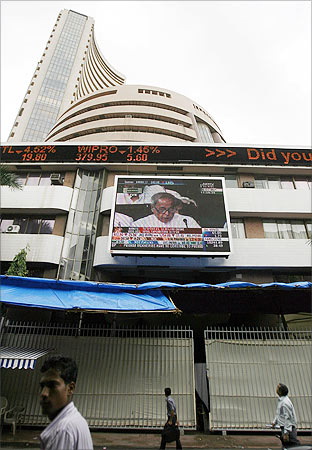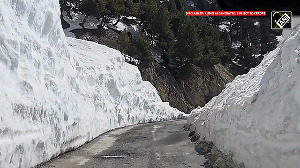 Global private equity major KKR has ranked India second among the emerging markets on external risks, citing the high fiscal and current account deficits.
Global private equity major KKR has ranked India second among the emerging markets on external risks, citing the high fiscal and current account deficits.
"Our emerging market framework takes the view of avoiding twin-deficits countries at this point," the global fund said in its 2014 macro/asset allocation outlook.
The country ended FY13 with an all-time high current account deficit of 4.8 per cent of GDP, which is slated to have improved significantly to 3.05 per cent in the first half of the current fiscal and may even be lower for full fiscal.
On the fiscal deficit front, India may struggle to achieve the targeted 4.8 per cent level as the government has already exhausted 94 per cent of target by November, analysts said.
South Africa tops the list of emerging market countries on the basis of external risk rank, ahead of India, according to KKR. Indian policymakers have recently initiated aggressive steps to attract fund flows into the country.
Even though India saw some improvement in the last quarter of 2013, the country spent a better part of the year worrying about the high CAD and its impact on the rupee, which hit a lifetime low of 68.85 against the dollar late August last.
The US Fed's taper talk late May 2013 only compounded the worries as FIIs pulled out massively. "We think countries with sizable or growing twin-deficits will continue to see their currencies and CDS (credit default swaps) under pressure in 2014 as Fed tapering gains momentum," KKR said.
The Fed began to cut back on its $85 billion monthly bond purchase by $10 billion this month. KKR India is headed by Sanjay Nayar and has over $1 billion invested in the country which includes stakes in Bharti Infratel, Coffee Day Resorts, Dalmia Cements and Magma Fincorp.
In the note, the private equity fund with a reputation for buyouts, also commented on the rising prevalence of asset quality stress within the banking sector. "India must now deal more forcefully with deteriorating loan quality that has previously been listed as merely 'restructured'," KKR said.
According to the Reserve Bank data, stressed assets, including those classified as NPAs and restructured ones, touched 10.2 per cent as on September 2013 up from 9.2 per cent in March 2013.
A slew of reasons, including the slowing growth, delays in getting necessary clearances for the large value infra projects and high interest rates are blamed for the problem.
"Lack of infrastructure investments, particularly in Brazil and India, is now starting to reveal notable economic bottlenecks," the KKR report said.
.jpg)










 © 2025
© 2025